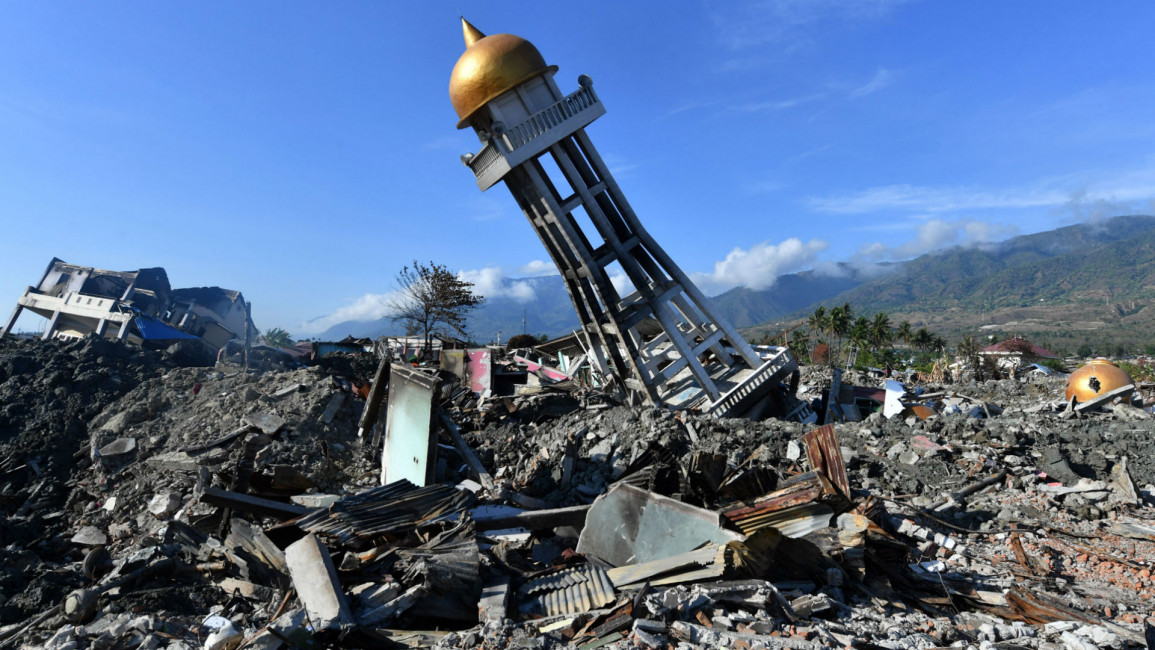Indonesia tsunami-quake death toll nears 2,000
Nearly 2,000 bodies have been recovered from Indonesia's disaster-ravaged Palu city, an official said on Monday, as the search for victims ended at a hotel destroyed in the powerful earthquake and tsunami.
The death toll from the twin disaster on Sulawesi island that erased whole suburbs in Palu has reached 1,944, said local military spokesman M. Thohir.
"That number is expected to rise, because we have not received orders to halt the search for bodies," Thohir, who is also a member of the government's official Palu quake taskforce, told AFP.
As many as 5,000 are believed missing in two hard-hit areas since the September 28 disaster, authorities believe, indicating far more may have perished than the current toll.
But hopes of finding anyone alive have faded and the search for survivors amid the wreckage has turned to gathering and accounting for the dead.
The disaster agency said the official search for the unaccounted would continue until October 11 at which point they would be listed as missing, presumed dead.
On Monday, rescuers called off the search at Hotel Roa-Roa, which was reduced to a tangled mess of twisted rebar and smashed concrete by the force of the quake.
The hotel emerged as an early focus of efforts to extract survivors, with seven people pulled alive from its mangled ruins in the immediate aftermath.
But nobody else was saved as the days passed, and optimism faded as corpses surfaced from the wreckage.
"The SAR (search and rescue) operation at Hotel Roa-Roa has ended, because we have searched the entire hotel and have not found any more victims," Bambang Suryo, SAR field director in Palu, told AFP.
Mass graves
Rescuers have struggled to extract bodies from the wreckage of Palu, a job made worse as mud hardens and bodies decompose in the tropical heat.
The government has said some flattened areas will be declared as mass graves, and left untouched.
Balaroa resident Sarjono agreed with sealing off the obliterated neighbourhood where vast numbers of bodies are believed trapped beneath the ruins.
"But only if they help us relocate elsewhere. If they don't, where will we live?" the 50-year-old told AFP near the debris of his former home.
Relief efforts have escalated to assist 200,000 people in desperate need. Food and clean water remain in short supply, and many are dependent entirely on handouts to survive.
Helicopters have been running supply drops to more isolated communities outside Palu, where the full extent of the damage is still not entirely clear.
The Red Cross said Monday it had treated more than 1,800 people at clinics and administered first aid to a similar number in the immediate disaster zone.
Indonesia sits along the world's most tectonically active region, and its 260 million people are vulnerable to earthquakes, tsunamis and volcanic eruptions.
Agencies contributed to this report.
Follow us on Twitter: @The_NewArab



